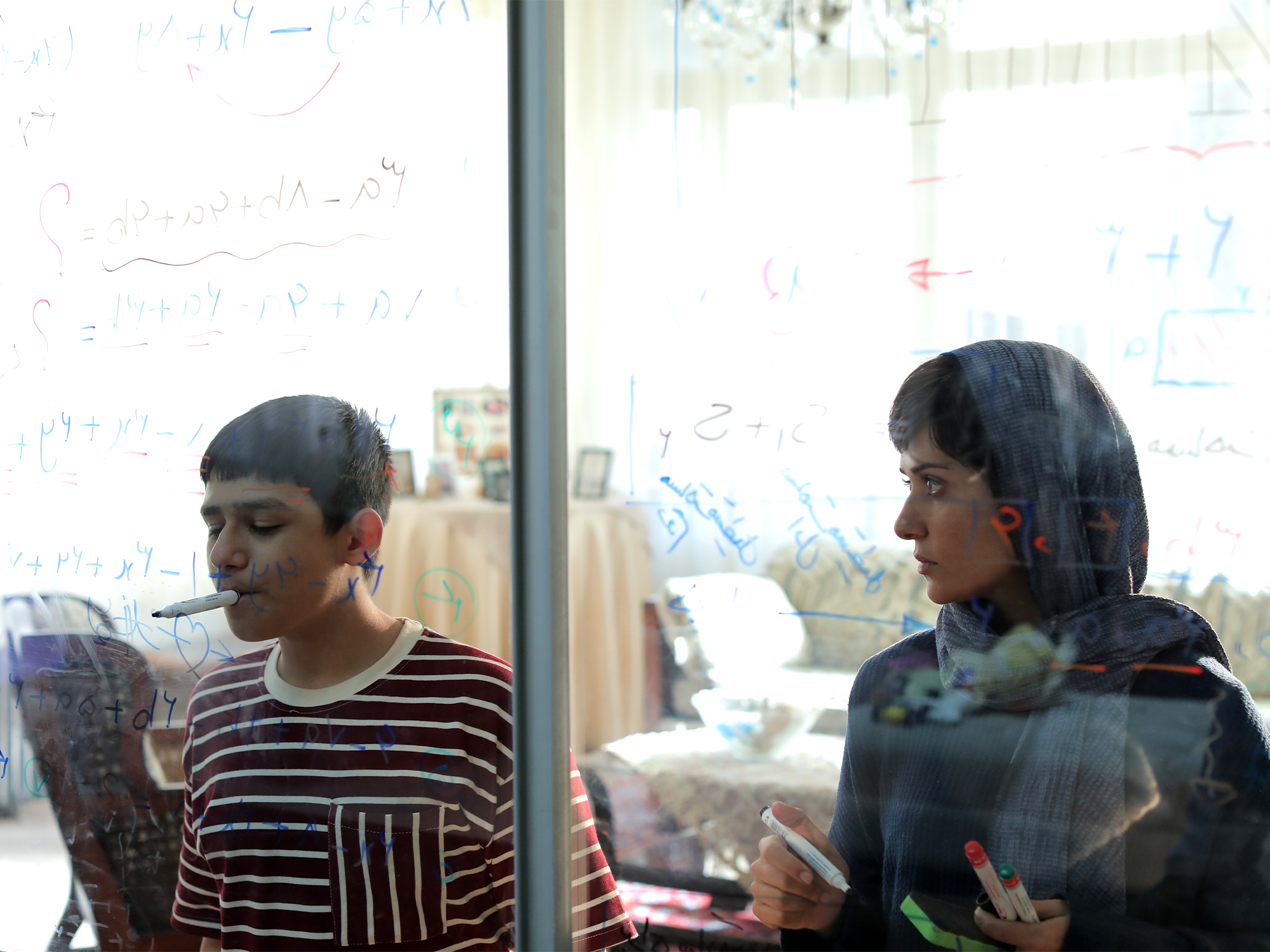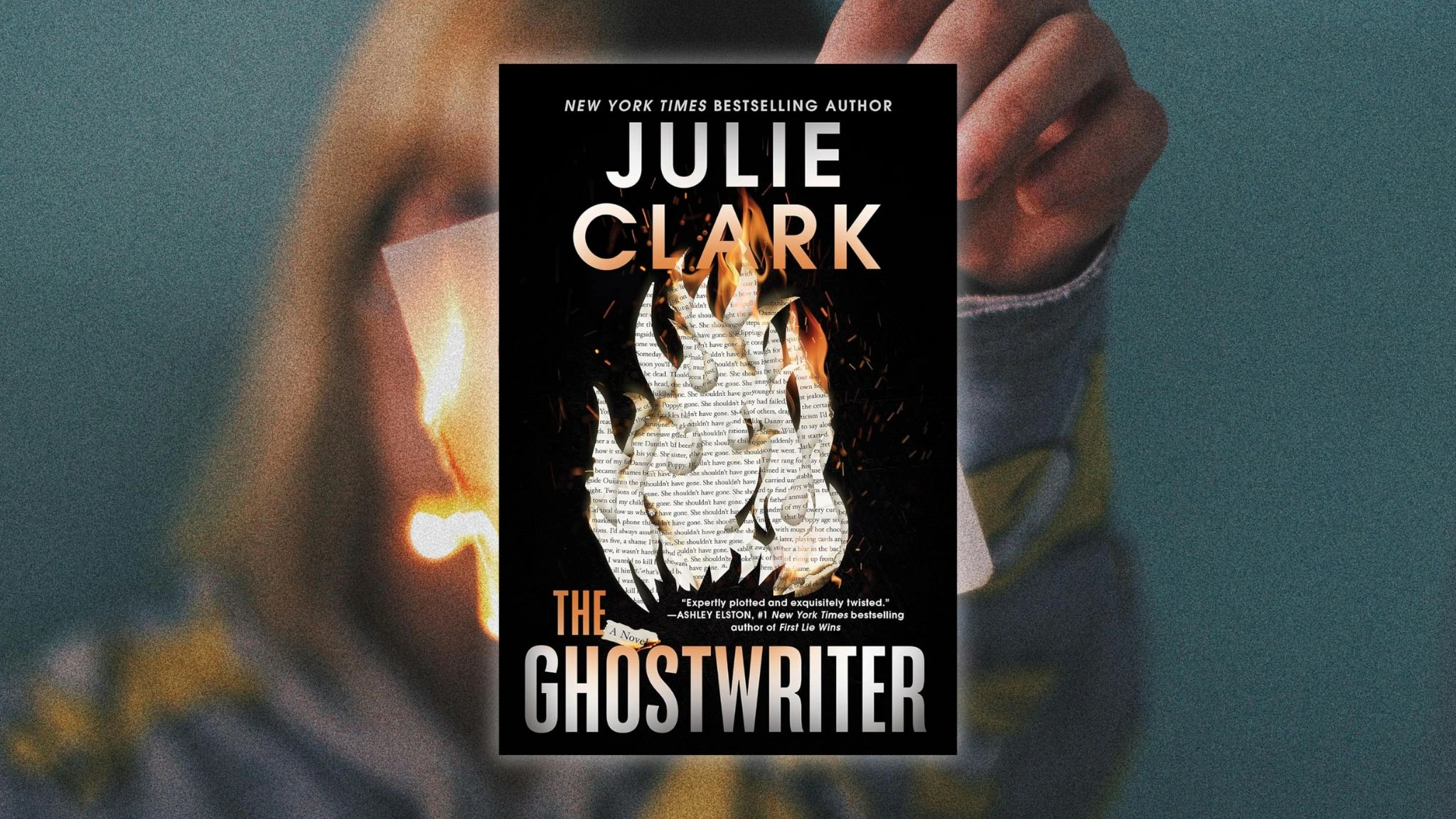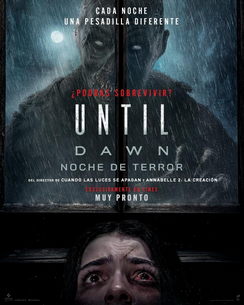
“Don’t let the people who hurt you tell you what’s real.”
This line, uttered at the narrative crux of Fixation, could be a coda for the entire film. The surreal horror narrative hones in on the terror of gaslighting, manipulation, and – specifically – women’s lack of agency in the wake of traumatic experiences. William Day Frank’s script is laced with psychological double-speak and controlling language directed at protagonist Dora – played with fire and venom by lead actress Maddie Hasson.
But it’s the layered, abstract imagery composed by director Mercedes Bryce Morgan that brings Fixation to life. Early on, we see Dora in a mental health facility she has no recollection of being admitted to. She questions her doctors and nurses – especially the sweet, honey-voiced Dr. Melanie. Melanie (a menacing Genesis Rodriguez) tries to convince Dora that the “good doctor” only wants what’s best for her, but the patient (captive?) refuses to relent.
Dora’s refusal to accept reality is at the core of Fixation. As she continues to doubt her surroundings, the facility reveals itself to be a menacing labyrinth of self-contained biospheres and eerie backstage hallways. This sets the stage for the brunt of the plot, as Dora finds herself lost in different “sets” – familiar rooms and settings from her childhood, awash with red neon and soaked through with mildew.
The film flirts with Alice In Wonderland imagery throughout. Dora’s descent reflects – to a point – a cracked reflection of Alice’s fall into the underground. A midpoint courtroom scene mirrors Alice’s trial, and Muska Zurmati’s costumes mirror avant-garde takes on the tried and true fairy tale. However, this is no mere pastiche. Morgan, Frank, and co-writer Katrina Kudlick utilize this imagery to make a larger point about the narratives men construct for women.
Fixation paints the terrifying Dr. Clark (Stephen McHattie) as a man obsessed with performance. He wants to cast vulnerable people to act out roles that consume their lives – and wash their minds. Dr. Clark can be read as a parable for any male artist eager to abuse or groom women in order to make their fever dreams manifest. A Kubrick, for instance – or in this case, a Carroll.
His controlled, manipulative villainy is a grim analogue. Fixation suggests that this process is done by abusing, breaking, and bringing women to heel. The film makes use of rough subject matter – grooming, child molestation and sexual assault are topics d’jour – to argue that in grueling emotional detail. It does so in a manner that never feels exploitive and is often presented in abstract.
An eloquent trigger warning at the top of the title cards indicates Fixation was made with the best of intentions. Much is made of trigger warnings in film. This grim and graphic picture proves that their inclusion isn’t an attempt to mollycoddle or shelter audiences. Visceral gore, needle jabs, and distressing oral torture are presented in full detail. This is easily one of the most intense horror films of 2022 – no small feat, considering gristly box office fare like Scream, Men, and X.
More films need to be willing to take the risks Fixation does. Dora’s journey defies our conventional understanding of rote “strong female character” arcs. Yes, Dora is resilient, and her courage throughout inspires. But Morgan’s film is not a particularly optimistic nor hopeful one. She’s unafraid to present challenging subject matter with no compromises. She also places a lot of faith in her audience – trusts that they’ll be able to “get it” with no hand-holding.
The director’s penchant for ambiguity, fearlessness, and trust elevate Fixation to must-see status. If this is the future of indie horror, the future’s never looked brighter – or scarier.
SCORE: 9/10
As ComingSoon’s review policy explains, a score of 9 equates to “Excellent.” Entertainment that reaches this level is at the top of its type. The gold standard that every creator aims to reach.
Disclosure: The publisher provided a screener for our Fixation review.
Read The Full Article Here






























:quality(85):upscale()/2025/05/19/981/n/1922564/93076eb0682bb18c994e06.89379902_.png)

:quality(85):upscale()/2025/05/23/715/n/1922564/1e63d6e168309df259d956.72331408_.png)



